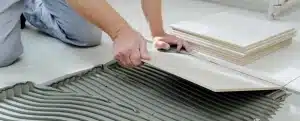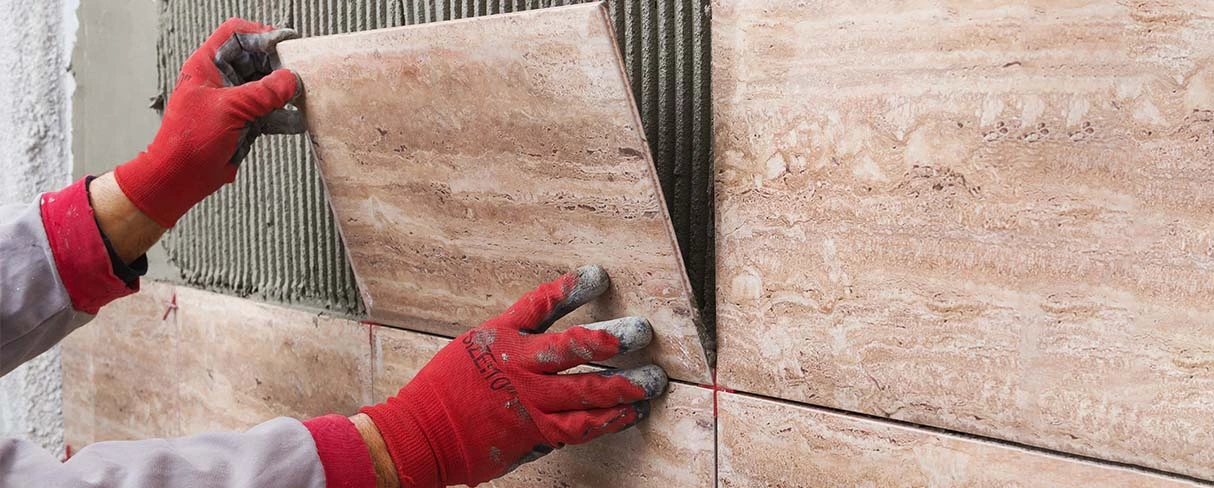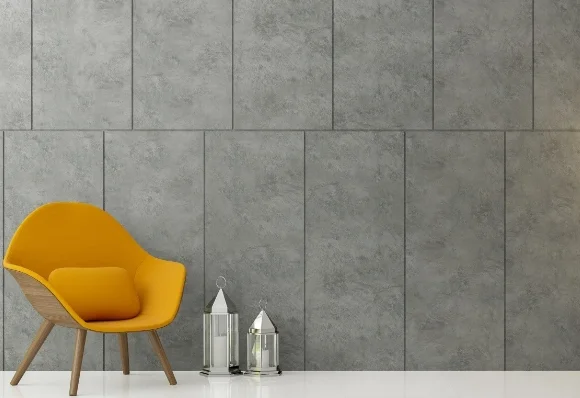
Menu
Edit
ADDRESS
Pidilite Industries Ltd,
Ramkrishna Mandir Road,
P.O. Box No. 17411,
Andheri (East) Mumbai – 400059
Check out the biggest trends of the season and our expert take on them.

Do you notice the space with perfectly laid tiles and stones that bring symmetry? To achieve the perfect look, various types of tile adhesives are used depending on the material. An interesting thing to notice is that these adhesives have replaced the conventional cement-sand mortar.
The Cement Vs Tile Adhesive Debate
Gone are the days when the final flooring material was installed on merely cement-sand mortar as the bedding layer. The debate about whether cement or tile adhesive is better for modern construction needs is ongoing. Here are some of the crucial points that brings light to the topic:
Bonding Strength
The use of these adhesives for tiles creates a strong bond between the flooring tiles and the substrate, resulting in improved quality and durability. On the other hand, cement sand mix has poor bonding strength due to uneven proportion and the presence of dirt.
Even Tile/Stone Installation
Tiles are most often used as a flooring material since they are extremely resilient and add an aesthetic look. Tile fixing adhesive by Roff works like glue that is used in tile installation. It ensures easy applicability and workability by the applicators. It helps to get the perfect tile installation with ample time to adjust the tile placement. On the other hand, cement mix dries quickly making it harder to adjust tile once it’s placed.
Adaptability
Cement hasn’t evolved in the past few years, to meet the new-age needs for construction. On the contrary, Roff provides a diverse set of products for all the modern tile and stone fixing challenges. Earlier small ceramic tiles were installed which have now been replaced by large vitrified tiles. In place of natural stones, composite stones are preferred as kitchen counters. External wall cladding at heights is becoming commonplace these days whereas such installations were rare in the past. Earlier, there was a single substrate. However, these days, there are other substrates available on the market like gypsum board, metal and cement sheets, plywood, tiles, etc. Nowadays, Tiles and stones are now being fixed in high-vibration areas like lift lobbies and door and window frames. Last but not least, tile installations are also expected to provide a leak-free surface with epoxy joint filling which is critical in wet areas like bathrooms and kitchens. Therefore, technologically advanced tile and stone fixing solutions are required to align with modern design needs.
Roff has a wide range of products that cater to each of these needs. The adhesives are polymer-modified and have superior qualities compared to cement and can be used to install in different application areas. E.g. Roff Non-Skid Adhesive is used for tile-on-tile application. Other than this, Roff Extrofix Adhesive is suitable for application in external areas up to 10ft height whereas Roff Powerflex Adhesive is another product by Roff, which can be used for external applications at any height. Roff Masterfix Adhesive is used for installing types on diverse substrates like metal, plywood, drywalls etc.
In short, the Roff offers tile adhesives, which is a better alternative to cement for all your tile and stone fixing requirements.


